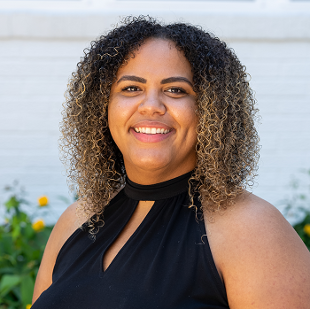Making Downtown Harrisonburg More Accessible
School of Professional & Continuing Education (SPCE)
Project Introduction:
My name is Samantha Harmon, and I am a Presidential Engagement Fellow with the School of Professional and Continuing Education at JMU. The presidential engagement program is a service year filled with experiential learning, and that’s precisely what the past eight months have entailed. This entire experience has been career-defining and has encouraged me to pursue my passion for advocacy work!
Continuing Education at JMU. The presidential engagement program is a service year filled with experiential learning, and that’s precisely what the past eight months have entailed. This entire experience has been career-defining and has encouraged me to pursue my passion for advocacy work!
Thus, the School of Professional and Continuing Education, Harrisonburg Downtown Renaissance (HDR), and Valley Associates for Independent Living are partnering to develop a new pilot program called Making Downtown More Accessible: Awareness, Inclusion, and Access.
This program aims to make downtown Harrisonburg more accessible and welcoming by assessing the lived experience of community members with physical disabilities as well as adults 50-plus who are living with physical impairments that have developed as they age. The goal is to enhance our understanding of which accommodations to implement and how awareness and accommodations can improve the customer experience for all.
Overall, this project aims to investigate if and where there are challenges in accessing the Harrisonburg downtown community for people with disabilities and work toward cultivating an accessible and welcoming environment for all. Thus, this project will:
- Learn from individuals with disabilities to understand better which accommodations should be made.
- Research what types of improvements HDR can assist businesses with implementing, to improve downtown accessibility.
Project Inspiration:
Various interactions and personal stories from our community members sparked the launch of the program. People living with physical disabilities want to be seen, heard, and empowered to live independent lives. As we age, many of us acquire an impairment or disability. With three large retirement communities close by and retirees choosing a walkable urban lifestyle, Harrisonburg has a significant population that we can serve better. Diners should be able to easily read menus. Friends should be able to enjoy conversations without struggling to hear or read lips. Shoppers should be able to open doors and move around fixtures easily. Customers should be able to navigate websites. These simple actions contribute to a person’s independence and a better quality of life.

Project Aspirations:
Our program will begin with a workshop designed to teach participants how to have sensitive interactions with customers who are living with impairments or disabilities. We are in the process of developing training materials to supplement employee education to empower staff to provide accommodations and offer appropriate assistance. We hope to offer pilot program participants accessibility accommodations such as improving their websites, buildings, customer service, and business operations. Accommodations could include automatic doors, materials printed in Braille, assistive devices, tablets with voice-assistive apps, entrance ramps, website accessibility, and more.
Pilot program participants will be featured on HDR’s website, recognizing their commitment to increasing accessibility. This online listing will connect individuals living with disabilities and people 50-plus to establishments that are prepared to offer accessibility accommodations and to help them feel welcome.
Where we are now:
We’ve learned that many business owners are excited to participate and learn more because they realized there were customer experiences that they weren’t considering. A restaurant owner shared that his parents struggled to read his menus when visiting because of low lighting. One retailer didn’t want to wait for the pilot to buy her own tablet with assistive technology so her team could communicate with people who live with speech and hearing impairments. Another retailer said she didn’t know about website accessibility checkers and was very interested in improving her online presence. Employers liked knowing we could provide their employees with simple guidance on accommodating needs and being sensitive to others’ lived experiences.
Additionally, we have launched a survey that will be followed by a focus group intended to ask community members to volunteer to share their lived experiences and perspectives. You are welcome to take the survey by clicking the button below or scanning the QR code.
https://jmu.co1.qualtrics.com/jfe/form/SV_07oskssfNreHGrs
Through this program, we plan to create awareness by educating business owners about lighting, music volume, and aisle width. By helping them install automatic doors and ramps, people with mobility impairments can independently enter a business. By distributing Augmented and Alternative Communication Devices, both people living with hearing or speech impairments and stroke survivors can have smoother customer service interactions. Such changes will make Harrisonburg into an even more “Friendly City” where more and more individuals can feel welcome and comfortable in their shopping and dining experiences.
